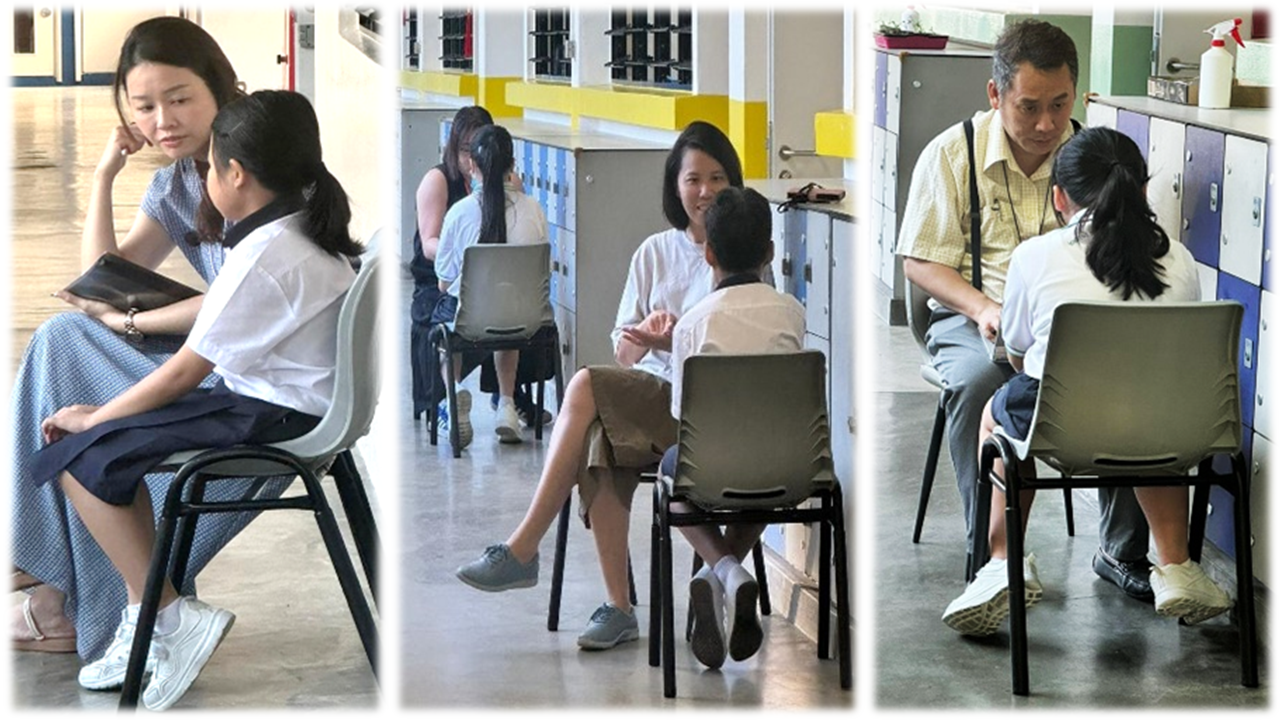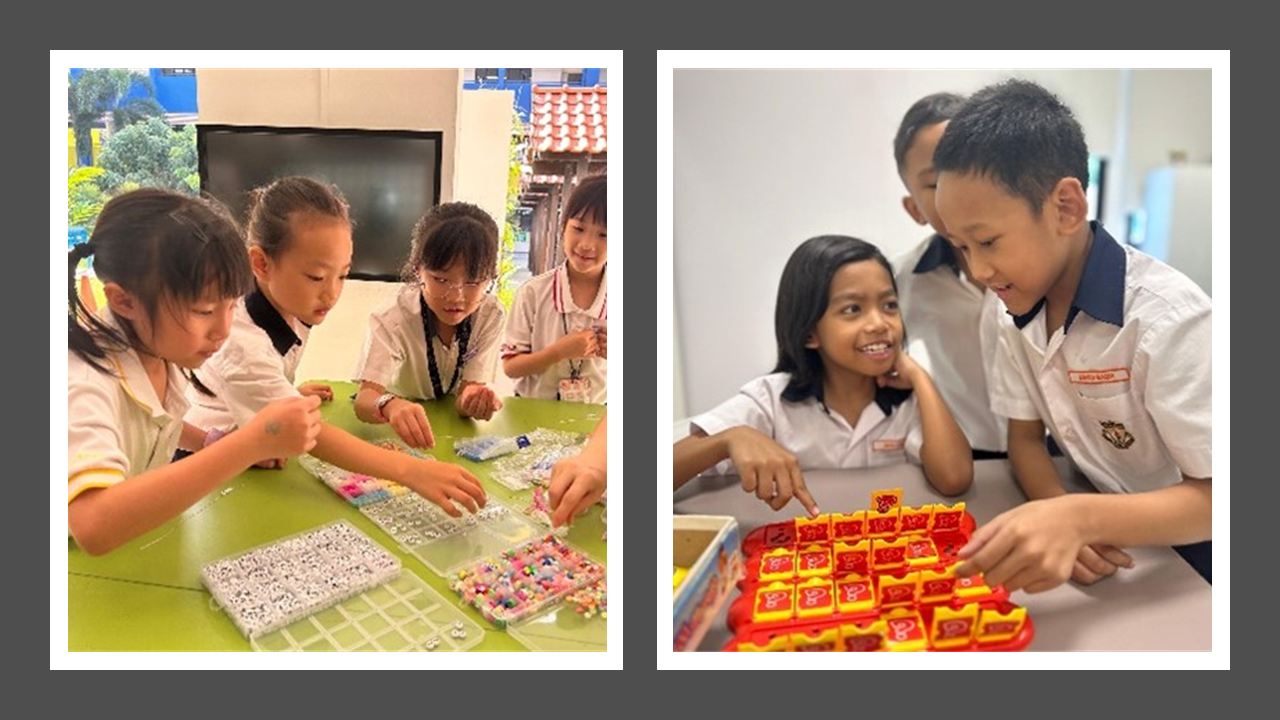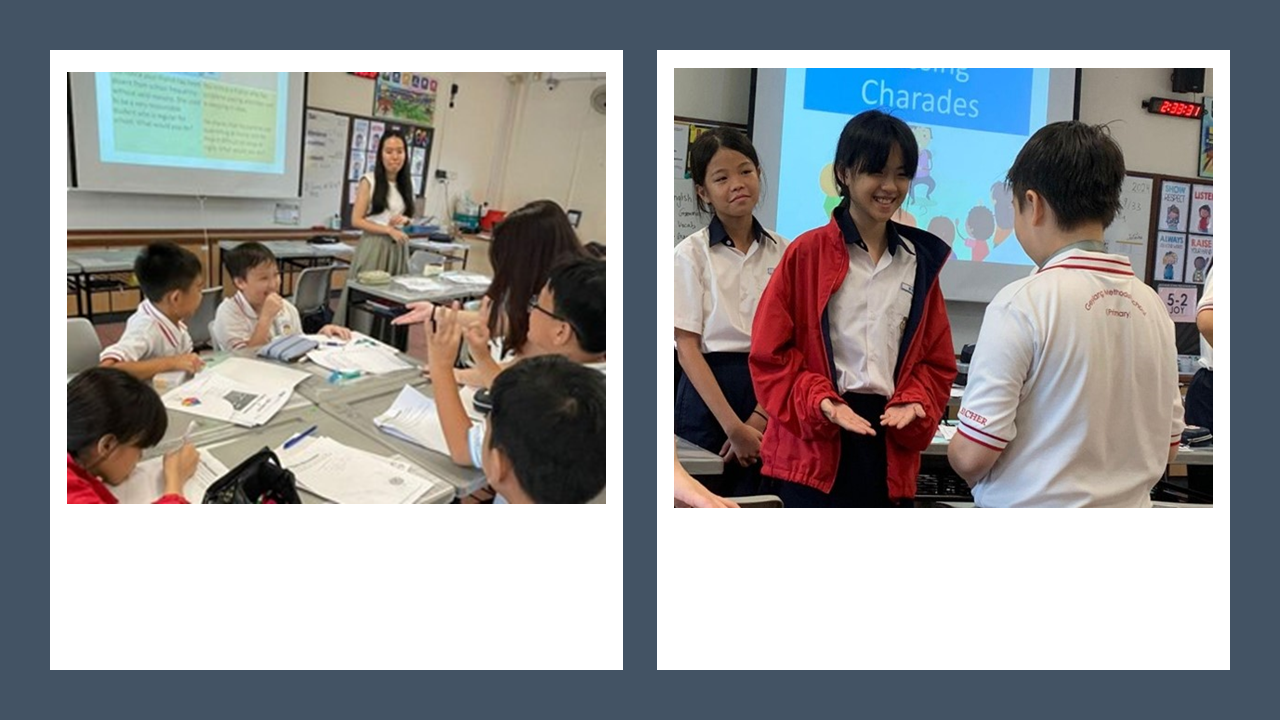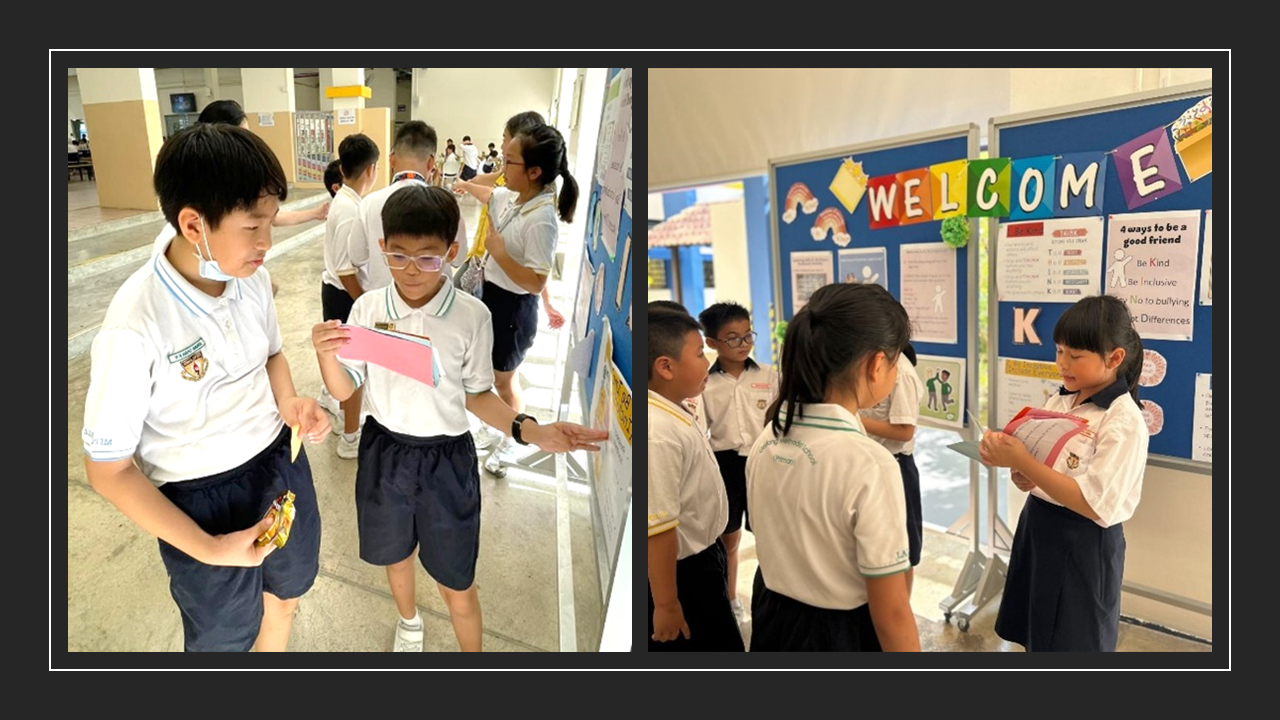Character & Citizenship Education (CCE)
Vision
To develop citizens of good character, ready to lead and serve.
Mission
To inculcate values and equip students with social emotional competencies and skills to be good individuals and useful citizens.
Overview
In GMS(P), we place great importance on teaching students to be good people and responsible citizens. This is done through Character and Citizenship Education (CCE). CCE helps students develop important life skills, such as understanding their emotions, working well with others, and knowing right from wrong. It also teaches them how to be active members of society and find meaning in what they do. All these skills work together to help students grow into well-rounded individuals who can lead successful and meaningful lives.
GMSP students (affectionately known as GEMs) are inspired by values to grow, lead and serve with joy. Values are the building blocks that help our GEMs grow into caring and responsible people who seek to bear fruit in every good work. Our daily morning devotion and weekly chapel sessions inculcate in our GEMs values anchored on bible verses.
-
CCE is enacted through:
-
CCE Form Teacher Guidance Period (FTGP)
-
CCE Mother Tongue Languages (MTL)
-
CCE Programme for Active Learning (PAL) for P1 & P2
-
Student Development Experiences such as Cohort Learning Journeys, Education and Career Guidance (ECG) Experience, Values in Action (VIA) and National Education (NE) Commemorative Events.
-
School based initiatives such as Values Extraordinaire Awards, signature level programmes etc.
The well-being of our students propels us to provide a caring and enabling school environment and sound CCE curriculum content.
Other Events / Programmes
In GMS(P), students are recognised for their efforts in demonstrating the values taught through nominations by teachers and peers in platforms such as the Values Extraordinaire Award, ECHA Award, MWee Award and LKY Award. Over the years, these Awards have helped to spur our students to internalize the values taught and to demonstrate them through their daily lives and actions.

Chapel in-session – Our weekly chapel sessions inculcate in our GEMs values anchored on bible verses
FTGP lessons – A dedicated time for form teachers to foster positive relationships with students, teach social and emotional competencies, and support their holistic development through activities and discussions
Student Well Being
At Geylang Methodist Primary School, every student is a GeM. We are committed to nurturing their well-being in a safe and supportive environment where they can grow in friendship, body and mind.
Our dedicated teachers genuinely care for each child, while our pastoral staff provide regular check-ins and follow-ups to offer guidance and support. Through engaging assembly programmes, recess activities and chapel sessions, we instill values and build a caring, inclusive community where every student feels a sense of belonging.

1 to 1 Student Teacher Interaction time

Making friendship bracelets and playing games during recess

Sending and Receiving Encouraging Notes for PSLE between Juniors and Seniors
Peer Support
Peer support plays a vital role in fostering a caring and enabling school environment. We believe that students thrive when they feel supported by their peers, and our Peer Support Leaders (PSLs) play a key role in building this strong sense of community.

Our PSLs are carefully selected and given the opportunity to lead their peers in meaningful ways. They undergo specialized training to enhance their conflict resolution skills and develop the ability to support their classmates effectively.

Equipped with these skills, they lead to create a positive and encouraging environment where students feel heard, valued, and supported.
To further build a culture of care, every class has a "You've Got Mail" mailbox, where students can write notes of encouragement to one another. This initiative helps to create a caring environment where students learn to uplift and support each other through edifying words while strengthening friendships. PSLs are the main drivers of this programme, ensuring that their peers feel appreciated and connected.
Beautifully decorated "You've got mail!" Mailboxes designed and made by students
Additionally, PSLs are given opportunities to connect with students across their level, allowing them to build relationships beyond their immediate classmates. These interactions not only reinforce the school’s peer support efforts but also help PSLs develop valuable leadership skills, preparing them to be confident and compassionate leaders in the future.

PSLs sharing with their peers during recess
At GMS(P), we believe that peer support is more than just a program—it is a culture of care that strengthens our school community. Through the dedication of our Peer Support Leaders and the collective effort of students and staff, we continue to nurture a safe, welcoming, and supportive environment for all.
Mental well being
We are committed to nurturing our students' mental well-being alongside their academic growth. Through various initiatives, we equip students with essential skills to manage their time and stress effectively.
Year Head Talks and assembly programmes are carried out on a regular basis to provide valuable guidance on self-management, resilience, and emotional well-being. In addition, teachers conduct frequent one-on-one check-ins with students to provide support, offer advice, and address concerns. Regular termly check-in surveys help teachers monitor students' mental wellness, allowing for timely follow-ups and interventions when needed.
Beyond the classroom, the school organizes Back-to-School activities every term to ensure students feel welcomed and motivated as they return from the holidays.

PSLs welcoming their school mates to school by giving them a high five on the first day of school
Cyber Wellness
Cyber Wellness is about our students being able to navigate the cyber space safely.
This is done through our curriculum which aims to equip students with the knowledge and skills to harness the power of Information and Communication Technology (ICT) for positive purposes, maintain a positive presence in cyberspace and be safe and responsible users of ICT.
Cyberwellness pop up booths during recess
At GMS(P), our Cyber Wellness (CW) programme aims to nurture responsible digital learners who navigate the online world safely and respectfully. Guided by three key principles—Respect for Self and Others, Safe and Responsible Use, and Positive Peer Influence—students learn the importance of making informed and ethical choices online.
Cyber Wellness education is integrated into FTGP and CCE lessons, with additional reinforcement through Assembly Talks, the School Messaging Board, and termly Cyber Wellness Programmes.

Cyberwellness lesson with The Smiley squirrel from POSB
Beyond the classroom, parents play a vital role in guiding their children's screen use and online habits. We believe that fostering Cyber Wellness is a shared responsibility and encourage parents to work closely with the school in promoting safe, responsible, and balanced digital use.
To reinforce Cyber Wellness messages at home, parents are encouraged to engage in "Family Time" activities found in the CCE (FTGP) Journal with their children. These activities provide meaningful opportunities to discuss online safety, responsible digital behavior, and the importance of healthy screen time management. By partnering together, we can help students develop mindful online behaviors and healthy screen habits both in school and at home.
|
Level |
Key Learning Points |
School-Wide Programmes |
|
1 |
|
Annual Safer Internet Day
Sharing by Cyber Security Agency and POSB
Interactive pop up booths by CSA to learn about cyber wellness and cyber security
Cyber wellness lessons on SLS
Cyber wellness training for Peer Support Leaders
Cyber wellness talks during Assembly by school teachers and peer support leaders.
|
|
2 |
|
|
|
3 |
|
|
|
4 |
|
|
|
5 |
|
|
|
6 |
|

